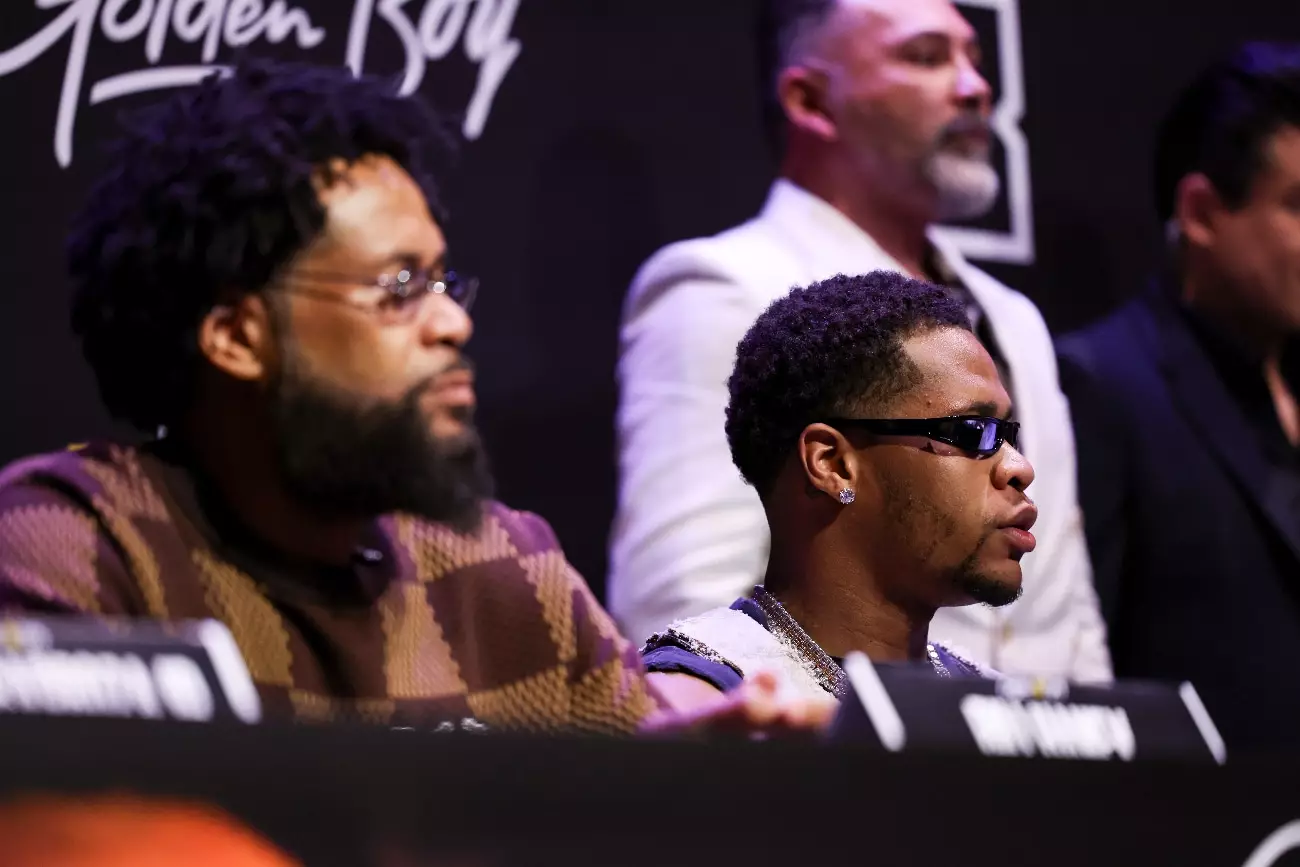The world of boxing is undergoing significant transformations, and these changes are not just a result of evolutions in techniques and training; they also reflect shifts in the way the sport engages with its audience. A recent instance that highlights this evolution is Bill Haney’s endorsement of YouTuber-turned-boxer Jake Paul as a representative of modern boxing. His comments reveal a growing trend where conventional definitions of success in boxing are being challenged, nurturing an intriguing yet controversial discussion about the future of the sport.
In a video shared on social media, Bill Haney, father and trainer of boxer Devin Haney, sang praises for Jake Paul’s entrepreneurial spirit and financial success. His remarks were not just casual compliments; they signaled a shift in perspective regarding who can be deemed the “face of boxing.” Bill expressed that while Jake’s popularity might lean more towards sensationalism than traditional skill, it nevertheless draws in a massive audience. This rhetoric underlines an unsettling reality for purists who defend the sport’s historical legacy and competitive integrity.
In Bill’s view, the dynamics of boxing are changing. He recognized that the sport requires new blood and innovative methods to attract fans, particularly younger audiences. His assertion that Jake Paul is the “face of boxing” showcases an acceptance of social media’s role in the industry’s evolution. With Jake Paul generating considerable revenue through his fights – coupled with a financial standing reportedly around $30 million – Bill pointed out how this model could further influence future boxers.
Reassessment of Devin Haney’s Career Path
Devin Haney, a once-promising young superstar in boxing, is now at a crossroads following a disheartening defeat to Ryan Garcia. The nature of this loss creates uncertainty around Haney’s viability as a top contender in the light-welterweight and welterweight divisions. Although some may believe a rematch with Garcia could breathe life into his career, the likelihood of that happening seems diminished. Instead, the conversation shifts towards potential matchups that are more in line with Bill Haney’s remarks about Jake Paul’s fighting style.
Should Devin consider the route of fighting retired MMA fighters or older boxing veterans, he could find himself in matches that attract attention and potentially lucrative pay-per-view sales. Bill mentioned a few notable names in this regard – such as Conor McGregor and Oscar De La Hoya – signaling that these matchups might create an economically viable path for Devin if he chooses to emulate the tactics of fighters like Paul.
While the idea of chasing financial success in boxing through unconventional means may appear tempting, it raises questions regarding authenticity. Traditionalists view boxing as a sport steeped in honor, legacy, and pure athletic competition. The reliance on personalities from social media circles, who may not have roots in boxing, threatens to dilute this essence. As fighters such as Devin Haney grapple with these evolving dynamics, they must confront the pressures of maintaining their authenticity in the ring while navigating the commercial opportunities on the periphery.
The current state of boxing is thus a balancing act. While the infusion of new personas such as Jake Paul into the sport contributes to renewed interest and revenue, it prompts an identity crisis for boxers like Haney. Can they remain devoted to the sport’s traditions while also embracing the money-making opportunities presented by the changing landscape? This question encapsulates the broader struggles many athletes face in an era where social media and entertainment often overshadow traditional sporting achievements.
The ongoing dialogue surrounding figures like Jake Paul and the implications of Bill Haney’s commentary point toward a pivotal moment in boxing. As traditional pathways become increasingly questionable for young fighters, adaptability could become a necessary trait. Reassessing what it means to be successful in boxing will force both established and emerging athletes to navigate the murky waters between legacy and modern celebrity culture. Ultimately, the future of boxing rests not only on individual skill but also on how fighters position themselves in a world fascinated more than ever by the spectacle surrounding the sport.

